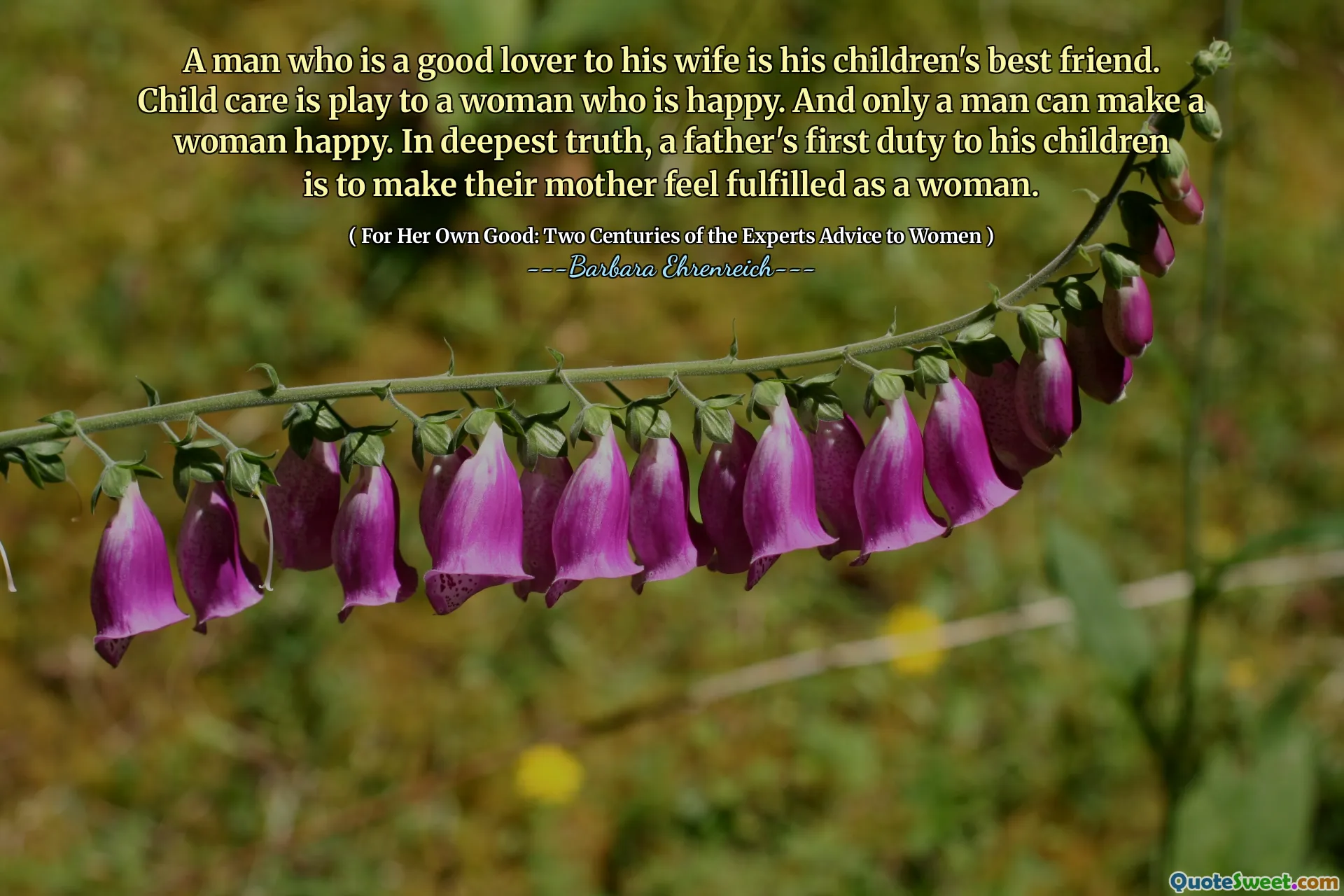
A man who is a good lover to his wife is his children's best friend. Child care is play to a woman who is happy. And only a man can make a woman happy. In deepest truth, a father's first duty to his children is to make their mother feel fulfilled as a woman.
This quote emphasizes the profound interconnectedness of intimate relationships and familial well-being. It suggests that the foundation of a healthy family begins with a husband's role in nurturing his wife’s happiness and fulfillment. When a mother feels loved, appreciated, and satisfied in her marriage, this positive emotional environment naturally translates into more joyful and secure children. The quote highlights the importance of emotional intimacy and mutual support between spouses, asserting that a man's attentiveness and affection toward his wife are not only vital for their relationship but are also crucial for the healthy development of their children. It underscores that child-rearing is not just about daily tasks or responsibilities but also about creating a loving and stable home environment, which is fostered when both parents are emotionally fulfilled.
In the broader context, the statement shifts the often conventional narrative that child-rearing responsibilities or household duties are solely the woman's domain. Instead, it advocates for recognizing the husband's integral role in nurturing a harmonious family dynamic through active engagement and emotional support. By framing a father's first duty as to ensure his wife feels fulfilled, the quote champions the idea that personal happiness and partnership are essential to effective parenting. This perspective aligns with modern psychological understandings that acknowledge the impact of parental relationships on children's emotional and social development.
Overall, it promotes a holistic view of family life, emphasizing that genuine fulfillment, love, and respect between partners are the cornerstones that support the growth and happiness of the entire family. It advocates for shared responsibility in making each family member feel valued and loved, ultimately fostering a nurturing environment where children can thrive emotionally and socially.






